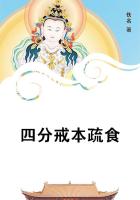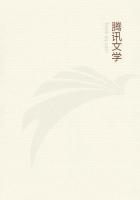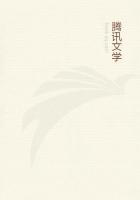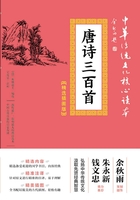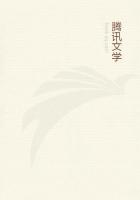AS I walked forth one summer's morn, Hard by a river's side, Where yellow cowslips did adorn The blushing field with pride;I spied a damsel on the grass, More blooming than the may;Her looks the Queen of Love surpassed, Among the new-mown hay.
I said, 'Good morning, pretty maid, How came you here so soon?'
'To keep my father's sheep,' she said, 'The thing that must be done:
While they are feeding 'mong the dew, To pass the time away, I sit me down to knit or sew, Among the new-mown hay.'
Delighted with her ****** tale, I sat down by her side;With vows of love I did prevail On her to be my bride:
In strains of ****** melody, She sung a rural lay;The little lambs stood listening by, Among the new-mown hay.
Then to the church they went with speed, And Hymen joined them there;No more her ewes and lambs to feed, For she's a lady fair:
A lord he was that married her, To town they came straightway:
She may bless the day he spied her there, Among the new-mown hay.
Ballad: THE PRAISE OF A DAIRY.
[THIS excellent old country song, which can be traced to 1687, is sung to the air of PACKINGTON'S POUND, for the history of which see POPULAR MUSIC.]
IN praise of a dairy I purpose to sing, But all things in order, first, God save the King! And the Queen, I may say, That every May-day, Has many fair dairy-maids all fine and gay.
Assist me, fair damsels, to finish my theme, Inspiring my fancy with strawberry cream.
The first of fair dairy-maids, if you'll believe, Was Adam's own wife, our great grandmother Eve, Who oft milked a cow, As well she knew how.
Though butter was not then as cheap as 'tis now, She hoarded no butter nor cheese on her shelves, For butter and cheese in those days made themselves.
In that age or time there was no horrid money, Yet the children of Israel had both milk and honey;No Queen you could see, Of the highest degree, But would milk the brown cow with the meanest she.
Their lambs gave them clothing, their cows gave them meat, And in plenty and peace all their joys wore complete.
Amongst the rare virtues that milk does produce, For a thousand of dainties it's daily in use:
Now a pudding I'll tell 'ee, And so can maid Nelly, Must have from good milk both the cream and the jelly:
For a dainty fine pudding, without cream or milk, Is a citizen's wife, without satin or silk.
In the virtues of milk there is more to be mustered:
O! the charming delights both of cheesecake and custard!
If to wakes you resort, You can have no sport, Unless you give custards and cheesecake too for't:
And what's the jack-pudding that makes us to laugh, Unless he hath got a great custard to quaff?
Both pancake and fritter of milk have good store, But a Devonshire white-pot must needs have much more;Of no brew you can think, Though you study and wink, From the lusty sack posset to poor posset drink, But milk's the ingredient, though wine's ne'er the worse, For 'tis wine makes the man, though 'tis milk makes the nurse.
Ballad: THE MILK-MAID'S LIFE.
[OF this popular country song there are a variety of versions. The following, which is the most ancient, is transcribed from a black-letter broadside in the Roxburgh Collection, entitled THE MILKE-MAID'S LIFE; OR, A PRETTY NEW DITTY COMPOSED AND PENNED, THE PRAISEOF THE MILKING-PAIL TO DEFEND. To a curious new tune called the MILKE-MAID'S DUMP. It is subscribed with the initials M. P.;probably those of Martin Parker.]
YOU rural goddesses, That woods and fields possess, Assist me with your skill, that may direct my quill, More jocundly to express, The mirth and delight, both morning and night, On mountain or in dale, Of them who choose this trade to use, And, through cold dews, do never refuse To carry the milking-pail.
The bravest lasses gay, Live not so merry as they;In honest civil sort they make each other sport, As they trudge on their way;Come fair or foul weather, they're fearful of neither, Their courages never quail.
In wet and dry, though winds be high, And dark's the sky, they ne'er deny To carry the milking-pail.
Their hearts are free from care, They never will despair;Whatever them befal, they bravely bear out all, And fortune's frowns outdare.
They pleasantly sing to welcome the spring, 'Gainst heaven they never rail;If grass well grow, their thanks they show, And, frost or snow, they merrily go Along with the milking-pail:
Base idleness they do scorn, They rise very early i' th' morn, And walk into the field, where pretty birds do yield Brave music on every thorn.
The linnet and thrush do sing on each bush, And the dulcet nightingale Her note doth strain, by jocund vein, To entertain that worthy train, Which carry the milking-pail.
Their labour doth health preserve, No doctor's rules they observe, While others too nice in taking their advice, Look always as though they would starve.
Their meat is digested, they ne'er are molested, No sickness doth them assail;Their time is spent in merriment, While limbs are lent, they are content, To carry the milking-pail.
Upon the first of May, With garlands, fresh and gay, With mirth and music sweet, for such a season meet, They pass the time away.
They dance away sorrow, and all the day thorough Their legs do never fail, For they nimbly their feet do ply, And bravely try the victory, In honour o' the milking-pail.
If any think that I
Do practise flattery, In seeking thus to raise the merry milkmaids' praise, I'll to them thus reply:-It is their desert inviteth my art, To study this pleasant tale;In their defence, whose innocence, And providence, gets honest pence Out of the milking-pail.
Ballad: THE MILKING-PAIL.
[THE following is another version of the preceding ditty, and is the one most commonly sung.]
YE nymphs and sylvan gods, That love green fields and woods, When spring newly-born herself does adorn, With flowers and blooming buds:
Come sing in the praise, while flocks do graze, On yonder pleasant vale, Of those that choose to milk their ewes, And in cold dews, with clouted shoes, To carry the milking-pail.

